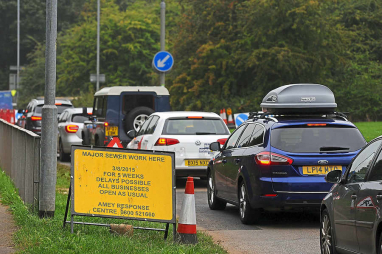- nike air jordan 1 factory outlet
- nike navy acg fw18 , nike navy acg fw18 Low Release Date - SBD
- images of nike lebron 6 low safari blue , Ja Morant Nike Ja 1 Colorways + Release Dates , IetpShops
- nike flyknit roshe electric green black Paris 308270 - SBD - nike boot with side zipper jeans black pants size , 111 Release Date
- NIKE AIR JORDAN 1 GOLF LOW RUST PINK , IetpShops , Russell Westbrook Nike jordan 1 flight 4 premium кроссовки мужские Northern Lights All Star
- best nike basketball shoes
- Air Jordan 1 University Blue 555088 134 Release Date Price 4
- air jordan xxxv cq4227 004
- Nike Blazer Mid 77 Catechu DC9265 101 Release Date
- air jordan 1 mid chicago 2020 554724 173
- Home
- News and analysis
- Info hubs
- Events
- Video
- Case Studies
- About us
- Magazine
- Advertising
Produced for the industry by the Association for Consultancy and Engineering
News
Lane rental to spread nationally

The Department for Transport is consulting on options for allowing local authorities to introduce lane rental charges for utilities and contractors after success with pilot schemes in London and Kent. Widespread use of lane rental charges could reduce trafic congestion by up to half, by encouraging utilties' contractors to better plan coordination of roadworks schemes to cut repeated lane occupations, DfT says.
The Kent an London trial projects, which have been uner way for a number of years, have reduced lane occupation times by more than half. In London, contractors have worked together in shared roadworks sites 600 times, compared with 100 previously, according to DfT. Lane rental schemes could be set up to encourage contractors to plan work for night work or weekends.
Many local authorities already operate permit schemes designed to maintain best practice in utility streetworks operations. Lane rental is seen as a further step to promote better coordination between contractors, including local authorities' own road maintenance and contracting teams. Giving councils more options for managing roadworks may also help rollout of broadband fibre networks, DfT says.
Transport Secretary Chris Grayling said: "Delays caused by roadworks can be the bane of drivers’ lives – especially when they take place at rush hour on busy routes. These proposals would give councils greater powers to ensure utility companies avoid carrying out works at the busiest times on the most popular routes."
Transport for London's managing director of surface transport, Leon Daniels, said lane rental has been a "resounding success" in the capital. Severe disruption caused by badly-managed or porrly-timed roadworks has more than halved, which has improved journey times for buses, motorists and cyclists, as well as helped to tackle emissions, he said.
One of the options included in DfT's consultation would allow authorities to introduce lane rental through a 'super permit scheme' without government approval. The Local Government Association’s transport spokesman, Martin Tett, said: ‘We are delighted that the Government has accepted our calls and acknowledged the success of pilot schemes in London and Kent. "It is crucial that councils are given these powers without lengthy national approval mechanisms, so they can ensure critical roadworks are carried out as quickly as possible."
However, the AA's President, Edmund King, has warned such schemes must not be allowed to encourage fast work in place of good workmanship. Speaking to Transport Network, King said: I"t wouldn’t be acceptable for the road to be patched up quickly and poorly, just to try and keep within their rental period."
AA president Edmund King also backed the proposals but said the new system should ensure that whoever digs up the road returns it back in a good state. He said: ‘It wouldn’t be acceptable for the road to be patched up quickly and poorly, just to try and keep within their rental period.’





